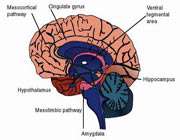Is It Possible to Recover Compeletly from Schizophrenia?

This is the first of a series of blog postings related to my own series of research studies (my doctoral research at Saybrook University) of people who have made full and lasting medication-free recoveries after being diagnosed with schizophrenia and other psychotic disorders. This is very exciting research because it is one of the few areas within psychological research that remains almost completely wide open. One reason it is so wide open is that most Westerners don’t believe that genuine recovery from schizophrenia and other related psychotic disorders is possible, in spite of significant evidence to the contrary. Since there are some very hopeful findings that have emerged within this research, I want to begin this series of postings by summing up one particularly hopeful aspect of my own research, which is a group of five factors that emerged which are considered to have been the most important factors in my participants’ recovery process. But before looking closer at these factors, we should back up for a minute…
Upon reading the statement in the preceding paragraph, “…people who have made full and lasting medication-free recoveries from schizophrenia…,” it’s likely that many readers did a double-take
Yes, you read this correctly. Contrary to this widespread myth about schizophrenia, the research is quite robust in showing us that not only is full medication-free recovery from schizophrenia possible, it’s surprisingly common, and is actually themost common outcome in many situations””such as in many of the poorest countries of the world, such as India, Columbia, and Nigeria, and as the result of certain psychosocial interventions, such as the Open Dialogue Approach used in Lapland, Finland.
This is likely to come as a surprise to many because we simply don’t hear much about this in the mainstream media. In fact, we generally hear quite the opposite message repeated again and again in various forms ”” something to the effect of, “Schizophrenia is a degenerative brain disease from which full recovery is not possible.” Considering how robust the evidence is that full recovery is possible and actually quite common, coming from sources no less prestigious than the World Health Organization and the National Institute of Mental Health, it is really quite tragic that the myth of no recovery continues essentially unimpeded. But for now, rather than going further into the details of this recovery research (which is well documented in my book, Rethinking Madness), let’s return to the topic at hand ”” the factors that appear to be particularly important for those who have experienced such full and lasting recoveries:
Factor #1: Hope in the possibility of real recovery. All participants in all three of my research studies expressed that in order to even begin the journey towards real recovery, they first had to believe that such recovery is actually possible. And in order to do this, virtually all of them had to extract themselves from the intense hopelessness generated by the toxic (and untrue) belief that such recover is not possible ”” a belief that they all reported was forced upon them (quite heavily handed in most cases) within the mental health treatment that they had received.
Factor #2: Arriving at an understanding of their psychosis alternative to the brain disease theory. Every participant went through a process of developing a more hopeful understanding of their psychotic experiences, generally coming to see their psychosis as a natural though very risky and haphazard process initiated by their psyche in an attempt to cope and/or heal from a way of being in the world that was simply no longer sustainable for them.
Factor #3: Finding meaning. All participants expressed how important it was for them to connect with meaningful goals/activities that made their life worth living””that provided them with some motivation to greet each new day with open arms and to channel their energy productively. And they all expressed having to overcome significant inhibition to this factor coming from the mainstream treatment they had received, which typically included strong motivation-inhibiting drugs (antipsychotics in particular) and the advice to generally lay low and avoid stress at all costs.
References:
Harrow M, & Jobe TH (2007). Factors involved in outcome and recovery in schizophrenia patients not on antipsychotic medications: a 15-year multifollow-up study. The Journal of nervous and mental disease, 195 (5), 406-14
Hopper, K., Harrison, G., Janca, A., & Sartorius, N. (2007). Recovery from schizophrenia: An international perspective: A report from the WHO Collaborative Project
Other Links:
Types of schizophrenia
Genetic mutations cause schizophrenia